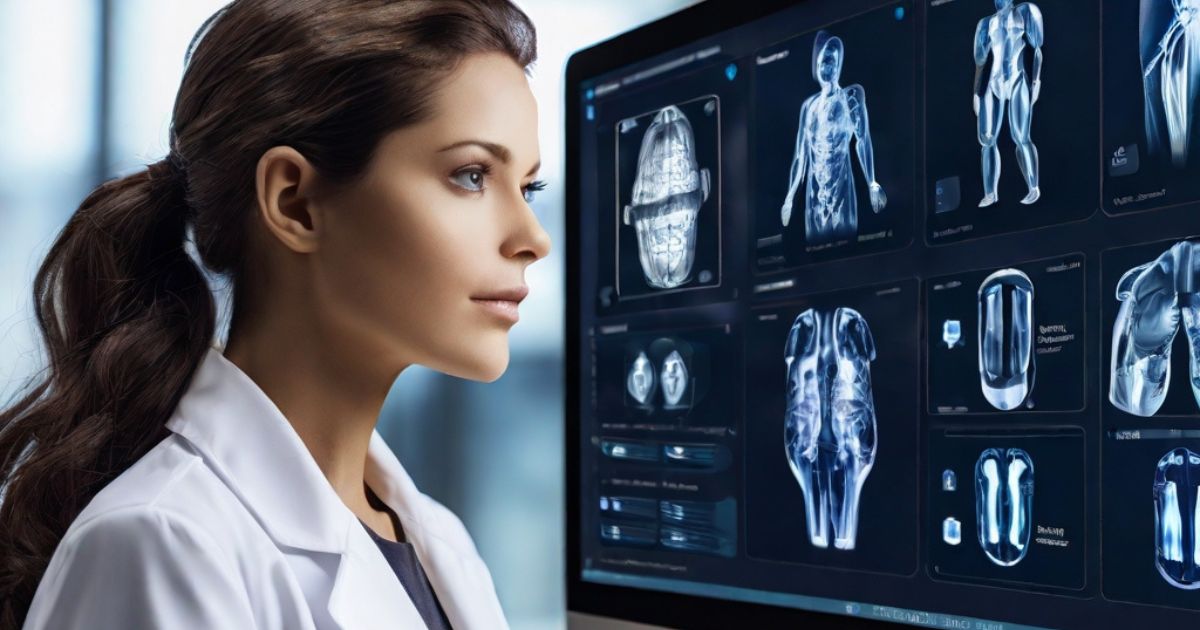The healthcare industry is undergoing a digital revolution, with AI at the forefront. According to a McKinsey and Harvard study, AI could save the U.S. healthcare system up to $360 billion (about $1,100 per person in the US) annually. Globally, the AI healthcare market is growing exponentially, with estimates placing its size between USD 170 billion and USD 200 billion by 2030, according to multiple reports. AI applications in diagnostics, patient management, and operational efficiency will drive this surge. By leveraging AI-powered software development, Health services providers can optimize operations, improve patient outcomes, and gain a competitive edge. Let’s demonstrate how technology can address specific healthcare needs.
Overcoming Healthcare Challenges with AI-Powered Solutions

Medical service providers face various challenges, from data overload to administrative inefficiencies. As health and wellness facilities generate vast amounts of data daily, traditional data management methods often struggle to keep up. This leads to delays in patient care, errors in diagnoses, and inefficient use of resources. To address these issues, AI-driven software is rapidly gaining traction.
According to Gartner, integrating AI for data management, particularly in medical imaging and diagnostics, is a key growth area in the AI Health and wellness market, expected to exceed USD 170 billion by 2030. Custom healthcare software development can provide real-time data insights, reduce processing times, and enhance the accuracy of diagnoses. AI-powered tools automate routine tasks, improve workflows, and allow medical professionals to focus more on patient care.
AI-Powered Administrative Solutions
Healthcare facilities often struggle with administrative burdens, such as scheduling appointments, verifying insurance, and managing patient records. These routine tasks can consume valuable time, limiting staff efficiency. With AI-powered Health management software, hospitals and clinics can automate administrative processes, improving overall operational efficiency.
AI-based virtual assistants streamline appointment scheduling and insurance verification, making medical treatment more accessible to patients. This has been a growing trend in Europe and Asia, where AI adoption in administrative healthcare services has contributed to reduced costs and improved patient care, as noted by Frost & Sullivan.
AI is already making an impact across various domains, addressing complex challenges with innovative solutions. For example, AI-powered administrative tools are enhancing efficiency, while advanced diagnostic systems are improving patient care. However, the true potential of AI can be seen when these technologies are applied to specialized fields within medical treatment. This brings us to the case of diabetic retinopathy, where AI could play a pivotal role, as demonstrated by the Helen Keller DRISTHI project.
Helen Keller DRISTHI: A Case in Custom Healthcare Software
A perfect example of how custom healthcare solutions can address specialized medical challenges is the Helen Keller DRISTHI project. Diabetic retinopathy is a leading cause of blindness in diabetic patients, and DRISTHI was developed to manage its diagnosis and treatment. This project exemplifies the importance of tailoring health and wellness software to meet the needs of specific medical conditions, as well as how technology can enhance patient care when applied strategically.
Expanding DRISTHI with AI
While DRISTHI is not currently AI-assisted, its strong tech foundation can be enhanced with AI capabilities. As highlighted in several reports, AI in healthcare is revolutionizing personalized medicine and predictive analytics. By 2030, AI is projected to enhance diagnostic accuracy and operational efficiency globally, with significant growth in Asia and Europe. Integrating AI into DRISTHI could enhance its capabilities:
- Data Management and Analysis: DRISTHI’s data management can be expanded with AI to:
- Integrate with EHR systems for comprehensive patient data.
- Use machine learning to identify health risks through data patterns.
- Image Recognition and Machine Learning: AI frameworks like TensorFlow or PyTorch can be used for image recognition models, integrated into the existing stack for automated analysis of medical images. Learn more about AI-driven software development here.
Example Application:
Building on DRISTHI, an AI-powered platform for the early detection of diabetic retinopathy could:
– Connect with EHR systems.
– Use machine learning to analyze patient history.
– Analyze retinal scans for signs of disease.
– Generate alerts for healthcare professionals to take timely action.
The Impact of AI on Medical Services

As seen in the DRISTHI project, AI-powered tools hold great promise for addressing complex medical conditions like diabetic retinopathy. But the impact of AI doesn’t stop there. In addition to specialized areas, AI implementation in health and wellness extends across the board, from administrative tasks to predictive analytics. AI-powered solutions are already identifying at-risk patients, creating personalized care plans, and reducing hospital readmissions, demonstrating their ability to drive meaningful improvements in healthcare delivery.
Globally, reports like those from Grand View Research emphasize AI’s role in predictive analytics and patient management systems, with projected market sizes reaching USD 187.95 billion by 2030. The case of the DRISTHI project illustrates how AI-assisted and custom software development can revolutionize healthcare.
By leveraging custom healthcare software development services with agile processes and AI-powered tools, health services providers can overcome challenges, improve efficiency, and provide better care. This case study highlights the transformative power of technology in healthcare, paving the way for a future where innovation and healthcare work together to deliver exceptional outcomes.
At iXora Solution, our remote tech team is a highly skilled group of professionals who collaborate to complete various tech projects. We emphasize communication and cross-team collaboration, using advanced technologies to keep everyone updated. Our streamlined onboarding process includes comprehensive in-house training to help team members adapt quickly. We prioritize interactivity, engagement, and connectivity within our development teams as well as with our clients.
Have specific project requirements? Personalized or customized software solutions! Let us know if you want it or you can reach out at info@ixorasolution.com or feel free to contact us. We are committed to maximizing your business growth with our expertise as a custom software development and offshore solutions provider.
Let’s make your goals a reality.
Thank You.

Add a Comment